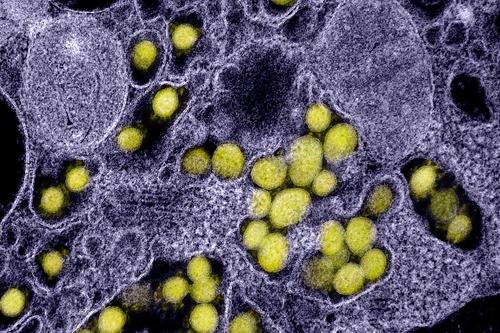University of Minnesota research team studies neutralizing monoclonal antibodies as possible treatment for COVID-19

The National Institutes of Health (NIH) and Operation Warp Speed have chosen a University of Minnesota School of Public Health research team to begin a global clinical trial of synthetic versions of natural human antibodies — called neutralizing monoclonal antibodies — as a treatment for COVID-19.
The collaborative study, named ACTIV-3, will investigate whether these antibodies can prevent the virus that causes COVID-19 from infecting more cells in adults hospitalized with the disease.
For use in the trial, antibodies specific to the virus were singled out from the blood of recovered COVID-19 patients and then reproduced. When infused into people sick with the illness, the monoclonal antibodies will cling to the protein spikes surrounding the virus and keep it from infecting healthy cells, in effect, “neutralizing” it. The process may mimic what’s happening naturally in people who can handle the virus relatively well.
In stage 1 of the study, 300 patient volunteers will be randomly assigned to receive either a placebo or LY-CoV555, a neutralizing monoclonal antibody. All will be receiving the antiviral drug remdesivir as part of the study design. If LY-CoV555 appears safe and effective, the trial will advance to stage 2 and an additional 700 patients will be randomized and enrolled.
Researchers will then compare the number of study participants in each randomized group who achieve sustained recovery, defined as discharge from the hospital and at home for 14 consecutive days. All participants will be followed for 90 days.
Four NIH-funded clinical trial networks with hospitals across the globe are carrying out ACTIV-3. The lead network is the International Network for Strategic Initiatives in Global HIV Trials (INSIGHT), which is led by Professor Jim Neaton in the University of Minnesota School of Public Health.
“An advantage of the collaboration among the four networks is that hospitals can be activated to enroll participants in epidemic hot spots in the U.S. and around the world in order to more rapidly obtain answers concerning the safety and efficacy of the treatments to be studied,” said Neaton.
Neaton says that in early fall, the ACTIV-3 trial may expand to include three or four new treatments, which may include polyclonal antibodies that attack the virus from another angle.




